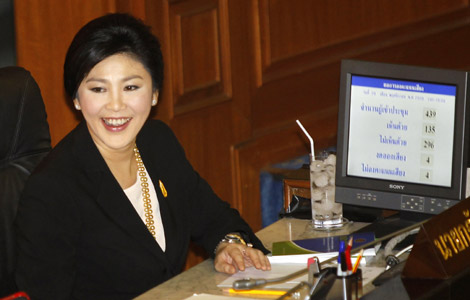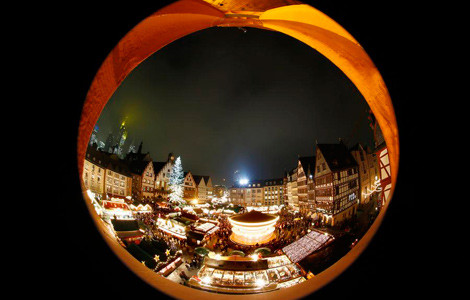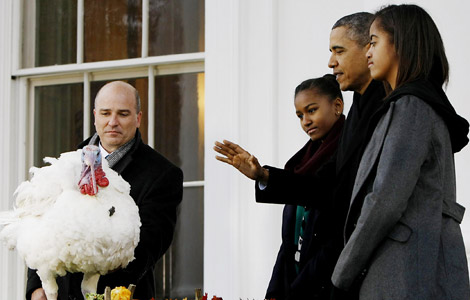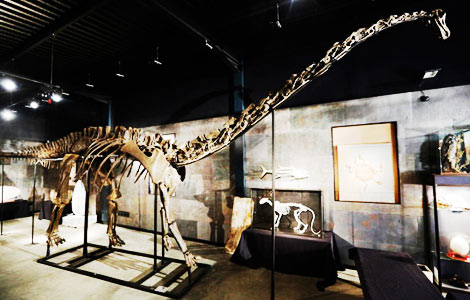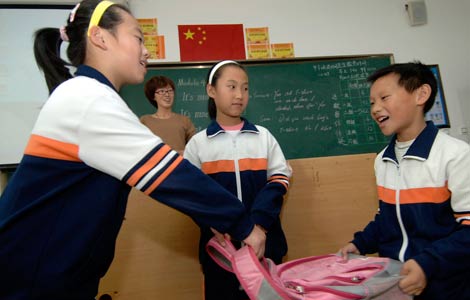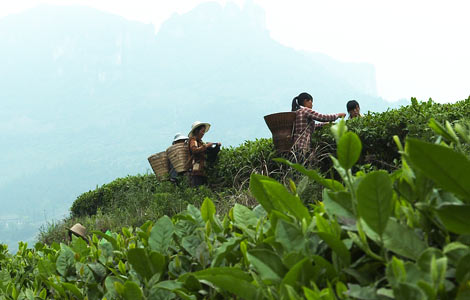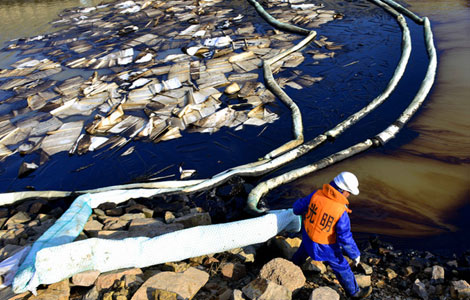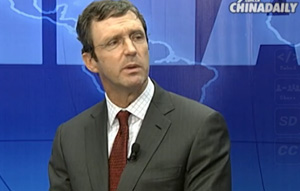Hebei to limit air pollutants, shut down obsolete plants
Updated: 2013-11-28 01:30
By ZHENG JINRAN in Shijiazhuang (China Daily)
|
||||||||
|
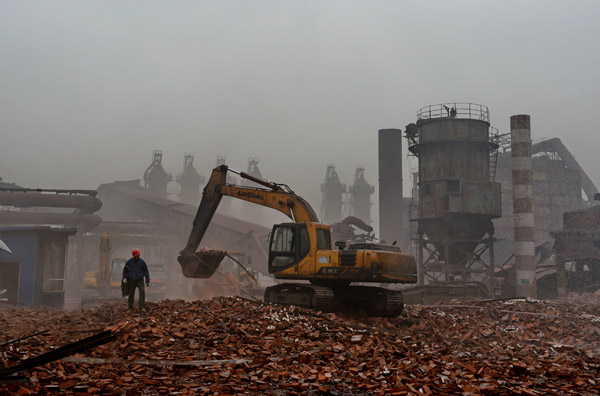 |
|
Workers in Tangshan, Hebei province, clear the rubble from a demolished 450-cubic-meter furnace on Sunday at the start of the province’s campaign to curb pollution and eliminate excessive iron production. Yang Shiyao / Xinhua |
Hebei province will set limits on the amount of allowed industrial air pollution and spend 291 million yuan ($47.7 million) to build a real-time digital monitoring system in the coming year.
The system will target the four major heavy-polluting industries — iron, cement, electricity and glass — in a move that accelerates the province's campaign to improve air quality.
Hebei's industries are cited as a major contributor to smoggy days in North China, including Beijing, which the province virtually surrounds.
The four industries produced the majority of air pollutants in Hebei, emitting at least 60 percent of the province's sulfur dioxide, nitrogen oxide and dust, and accounting for 53 percent of the province's use of coal — 167 million metric tons — in 2012.
"These four industries are the pillar industries of the province, fueling economic growth, but they need to control the air pollution," Hebei Vice-Governor Yang Chongyong said at a news conference on Wednesday.
The government now will monitor the major 521 companies from the province's four industries more closely. All companies will have quotas on pollutant emissions, and will have their emissions overseen.
"The government needs to get the whole picture about these companies' emissions and also updates on how much more emissions they are allowed," Yang said.
Companies that reach their emission quotas will be forbidden from emitting any more into the air until they buy more permits from the emission-permit market or pay fines.
Government surveys of the companies' emission capacities will be finished by June, and companies will have to buy extra emission permits by the end of 2014 if they exceed their quotas.
In addition to implementing emission permits and the monitoring system, the province will shut down 94 obsolete iron and steel sintering plants, install desulfurization equipment in 43 cement production lines and 94 glass-making lines, and update 49 coal-fired power plants to reduce dust emissions. The work will be complete by the end of next year.
"We know these measures will increase the companies' production costs, but the province needs to pursue green growth and sustainable development," Yang said. Companies can lower costs through reorganization or adopting advanced technology, he added.
Names of the 10 companies that emit the most pollutants will be publicly released every quarter in 2014 to urge them to reduce their emissions as much as possible, he said.
Hebei will reduce iron and steel production by 60 million tons, and 40 million tons of coal consumption by 2017. In addition, more than 61 million tons of out-of-date cement capacity will be shut down, as will 36 million weight cases of glass in five years. A weight case is 50 kg.
"The participation of the market will force these major polluters to upgrade their equipment and management, creating a better economic structure and also reducing air pollution," said Wang Wei, a professor in environment protection at Hebei Normal University.
However, the emission quotas may cause some problems since the standards for these companies will be based mainly on reduction targets set by the central government, he said.
"The government needs to take the capacity for reducing pollution into consideration, or the air quality improvement may not be as good as expected," he said.
To keep updates of emissions accurate, the governments need to monitor the equipment frequently, he said.
zhengjinran@chinadaily.com.cn
Most Viewed
Editor's Picks

|

|

|

|

|

|
Today's Top News
Sugar imports soar in China
Italy Senate expels Berlusconi from parliament
Obama calls Saudi king over Iran: White House
Skype changes partners in China
Biden’s China trip has broad agenda
Premier carries hectic schedule
China to be largest oil importer
Clean energy fueling the future
US Weekly

|

|
